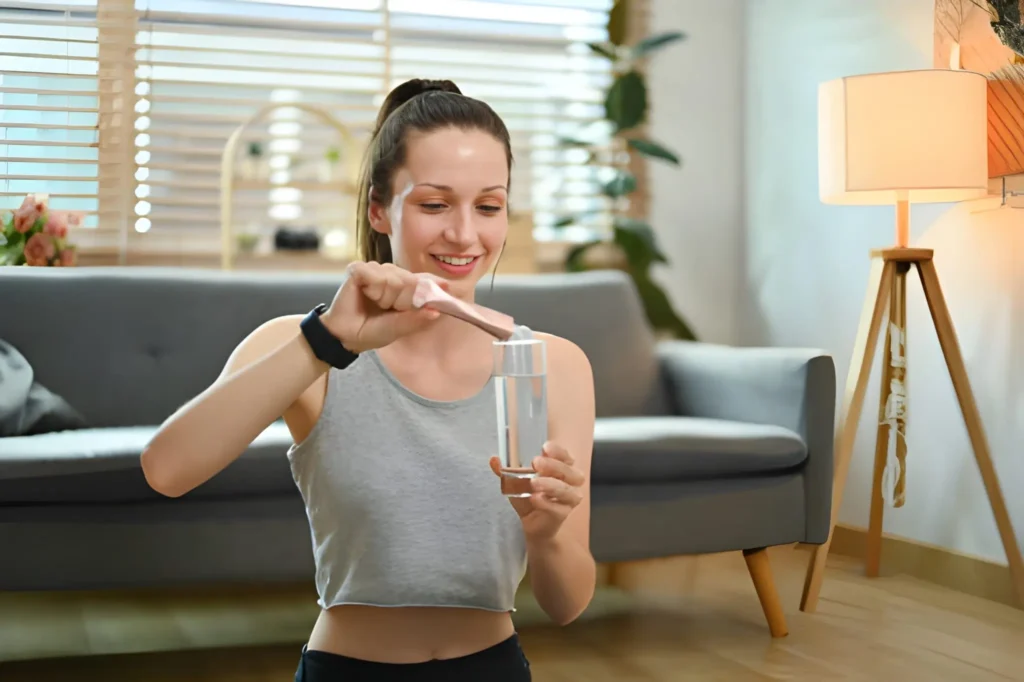The collagen supplement market feels like the Wild West right now—everybody’s making claims, but not everyone’s delivering results. Finding the best natural collagen supplements requires cutting through marketing nonsense and focusing on what actually works. Your skin starts losing collagen at about 1% per year after age 25, which adds up fast. By the time you hit 50, you’ve lost roughly 25% of your collagen production. The question isn’t whether collagen supplements can help—recent research shows they definitely can. The real challenge is figuring out which ones are worth your money and which are just expensive placebo pills.
Understanding Collagen Types and Their Functions
Not all collagen is created equal, and this matters more than most people realize. There are actually 28 different types of collagen in your body, but three types make up about 90% of what you’ve got.
Type I collagen is your skin’s best friend—it makes up about 80% of your skin’s structure and gives you that firmness and elasticity you had when you were younger. Type II focuses mainly on cartilage and joints, while Type III works alongside Type I in your skin and also supports your blood vessels.
When you’re shopping for supplements, look for ones that specifically mention hydrolyzed Type I and Type III collagen. The hydrolyzation process breaks down the collagen into smaller peptides that your body can actually absorb and use. Regular collagen molecules are too big to get through your digestive system intact.
Source Quality Makes All the Difference
Here’s where things get interesting—where your collagen comes from matters way more than most supplement companies want to admit. Marine collagen, typically sourced from fish scales and skin, has the smallest peptide size and highest bioavailability. Studies show marine collagen gets absorbed into your bloodstream about 1.5 times more efficiently than bovine collagen.
Bovine collagen from grass-fed cattle is the second-best option. The grass-fed part isn’t just marketing fluff—cattle that eat natural diets produce collagen with better amino acid profiles and fewer contaminants. Avoid supplements that don’t specify their source or mention “mixed sources.”
Chicken collagen mostly contains Type II, which is great for joint health but not as useful for skin benefits. If skin improvement is your main goal, stick with marine or high-quality bovine sources.
Absorption and Bioavailability Factors
Your body doesn’t just automatically turn collagen supplements into skin improvements. The supplement needs to survive your digestive system, get absorbed into your bloodstream, and then be transported to where it’s needed.
Look for supplements that include vitamin C—it’s essential for collagen synthesis and helps your body actually use the collagen peptides you’re consuming. Studies show that taking collagen with vitamin C increases absorption by up to 30%.
Timing also matters more than most people think. Taking collagen on an empty stomach, ideally first thing in the morning or before bed, maximizes absorption. When you take it with meals, especially protein-heavy meals, you’re competing with other proteins for absorption pathways.
Research-Backed Dosage Guidelines
Most of the positive studies on collagen supplements use doses between 2.5 and 15 grams daily, but the sweet spot for skin benefits seems to be around 5-10 grams. Going higher doesn’t necessarily give better results—your body can only process so much at once.
One study published in the Journal of Medical Nutrition found that women who took 2.5 grams of collagen daily for 8 weeks saw 20% improvement in skin elasticity. Another study using 10 grams daily showed similar results but didn’t demonstrate significant additional benefits for the higher dose.
Consistency matters way more than quantity. Taking 5 grams every day for three months will give you better results than taking 15 grams sporadically.
Third-Party Testing and Quality Verification
The supplement industry is basically unregulated, which means you need to be your own quality control inspector. Look for products that undergo third-party testing for heavy metals, especially mercury and lead, which can accumulate in marine-sourced products.
NSF International, USP, and ConsumerLab are the main third-party testing organizations you want to see on labels. These certifications mean the product actually contains what the label claims and doesn’t have dangerous contaminants.
Also check for certifications like MSC (Marine Stewardship Council) for fish-sourced collagen or organic certifications for bovine sources. These aren’t just environmental feel-good labels—they often indicate higher quality sourcing and processing standards.
Read more: How a Sensor Tap Can Save Water and Add Convenience to Your Home – Spiritual Meaning Portal
Exploring the Benefits of Advanced Laser Eye Surgery in Melbourne – Spiritual Meaning Portal
Cryptocurrencies 101: What You Should Know Before You Buy – Spiritual Meaning Portal







